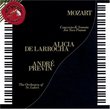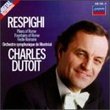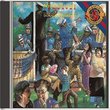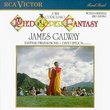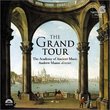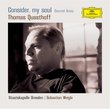| All Artists: Ludwig van Beethoven, Glenn Gould Title: Beethoven: Piano Sonatas Nos. 24 "À Thérèse" & 29 "Hammerklavier" Members Wishing: 0 Total Copies: 0 Label: Sony Release Date: 6/29/1993 Genre: Classical Styles: Forms & Genres, Sonatas, Historical Periods, Classical (c.1770-1830), Modern, 20th, & 21st Century, Romantic (c.1820-1910) Number of Discs: 1 SwapaCD Credits: 1 UPC: 074645264523 |
Search - Ludwig van Beethoven, Glenn Gould :: Beethoven: Piano Sonatas Nos. 24 "À Thérèse" & 29 "Hammerklavier"
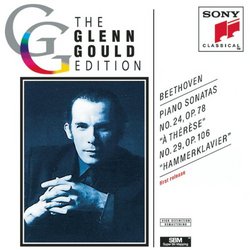 | Ludwig van Beethoven, Glenn Gould Beethoven: Piano Sonatas Nos. 24 "À Thérèse" & 29 "Hammerklavier" Genre: Classical
Why this 1968 recording of Sonata No. 24 (Op. 78 in F Sharp) lay dormant until now is a mystery. Gould obviously relishes this little jewel, and plays up the two movement's contrasting qualities with exquisite poise and ... more » |
Larger Image |
CD DetailsSynopsis
Amazon.com Why this 1968 recording of Sonata No. 24 (Op. 78 in F Sharp) lay dormant until now is a mystery. Gould obviously relishes this little jewel, and plays up the two movement's contrasting qualities with exquisite poise and superb characterization. An unreleased CBC broadcast of the mighty Hammerklavier sonata, on the other hand, is scaled down to drawing-room size. Gould brings out the knotty counterpoint with microscopic clarity, yet ducks from Beethoven's surging dynamism in the outer movements. The Andante Sostenuto is reticent and stark under Gould's introspective hands, touching upon but not yielding to the music's tragic overtones. Not the first choice Hammerklavier for your collection, but Gouldians should hear it. --Jed Distler Similarly Requested CDs
|
CD ReviewsShedding new light V. Vo | Los Angeles, CA USA | 10/18/2001 (4 out of 5 stars) "This recording of the Hammerklavier is not a studio recording. It's a CBC radio broadcast hence the quality of the recording is one of the worst in the Glenn Gould collection. Asides from the quality, he does bring new light to this sonata, especially in the Fugue. The Allegro also has a certain light-heartedness to it that is a complete breath of fresh air.Now with the sonata in Fsharp major, Beethoven must be rolling in his grave when this sonata was first performed by Mr. Gould. It is one of the most strange playing that I've ever heard. Its not a bad recording by any means, in fact I find it superb.Basically the only thing I can say is that this recording is probably completely wrong from the composer's intentions, but somehow shines under the improvisatory nature of the pianist. And Glenn Gould is no ordinary pianist.Its a very strange sonata. Hear it, be baffled, then fall in love with it." Not his cup of tea Mauro Guzzo Decca | São Paulo, Brazil. | 03/17/2007 (2 out of 5 stars) ""À Thérèse" is one of my favorite Beethoven's sonatas. I've always been struck by the gorgeous beauty of the four-bar introduction adagio which sets the scene for the wonderful theme that follows - since the very beginning we know we're in for a treat. Much, if not all, the beauty of this piece depends on the overall melodic contour and the singing quality of the main theme. By slowing it down to a crawl, Gould pretty much destroys the melody and robs the main theme of all its emotional content and significance. The outcome is a disastrously dull account of this otherwise amazing sonata. If one takes away the power and impact from the Hammerklavier, there remains almost nothing to be inspired by, and that's basically what Gould does to this piece. Gould's long-standing immersion in J.S. Bach's music, however, enables him to skillfully handle the fugue in the last movement, which is the most interesting thing on the disc. Owing to its awkwardness and idiosyncratic approach, this disc should definitely not be your first choice if you want to get acquainted with these wonderful sonatas." Mr. Gould Does It Again... Mauro Guzzo Decca | 06/01/2004 (5 out of 5 stars) "Once again, GG scores a big hit. I must admit, I'd hitherto always been a little put off by the mighty "HammerKlavier": it's a huge-boned warhorse and a caution. There's no doubt, it's one of the biggest most significant piano sonatas in the entire literature. But GG has made it approachable for me: I think it's because he diffuses the shocking dynamic changes of register and reduces the sharp contrast of tempi: it's like the cosmos will be when eventually it expands to reach a mean temperature and density of matter: bliss."
|

 Track Listings (7) - Disc #1
Track Listings (7) - Disc #1
